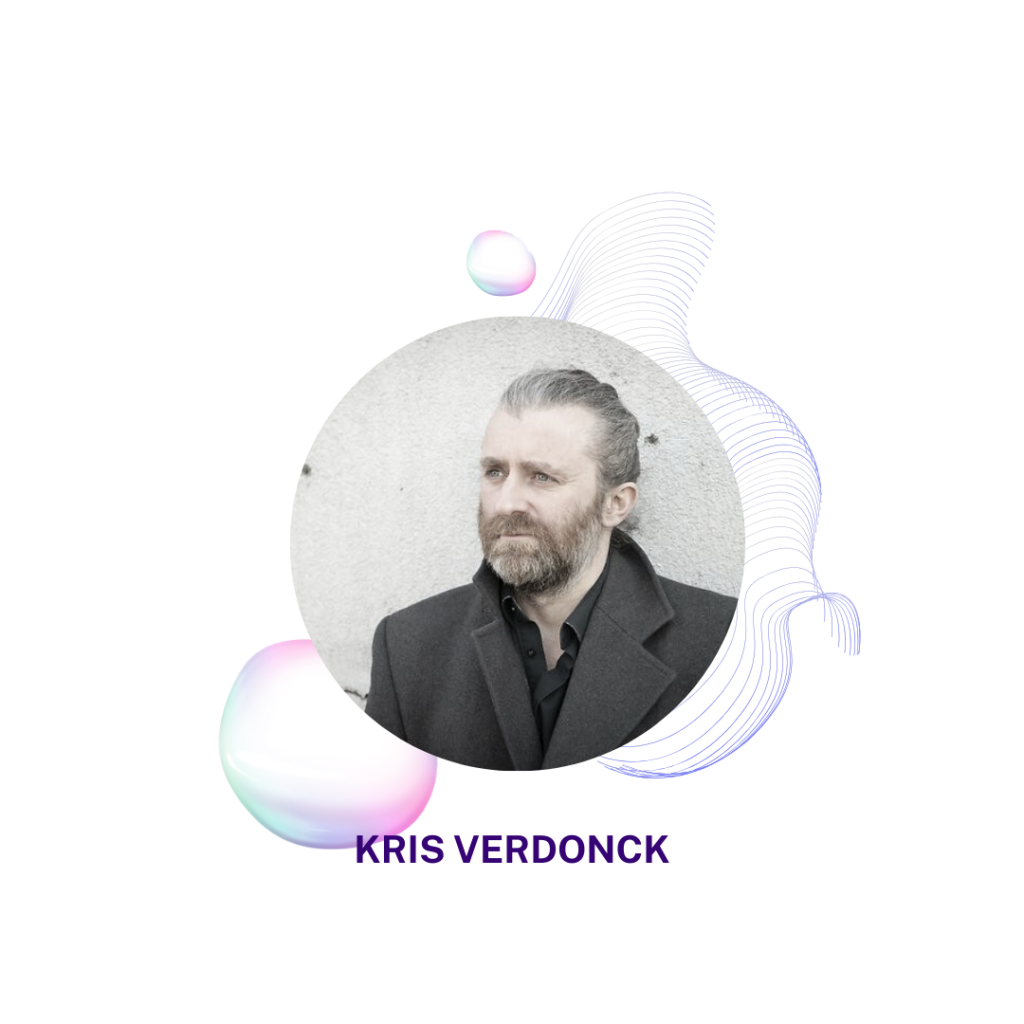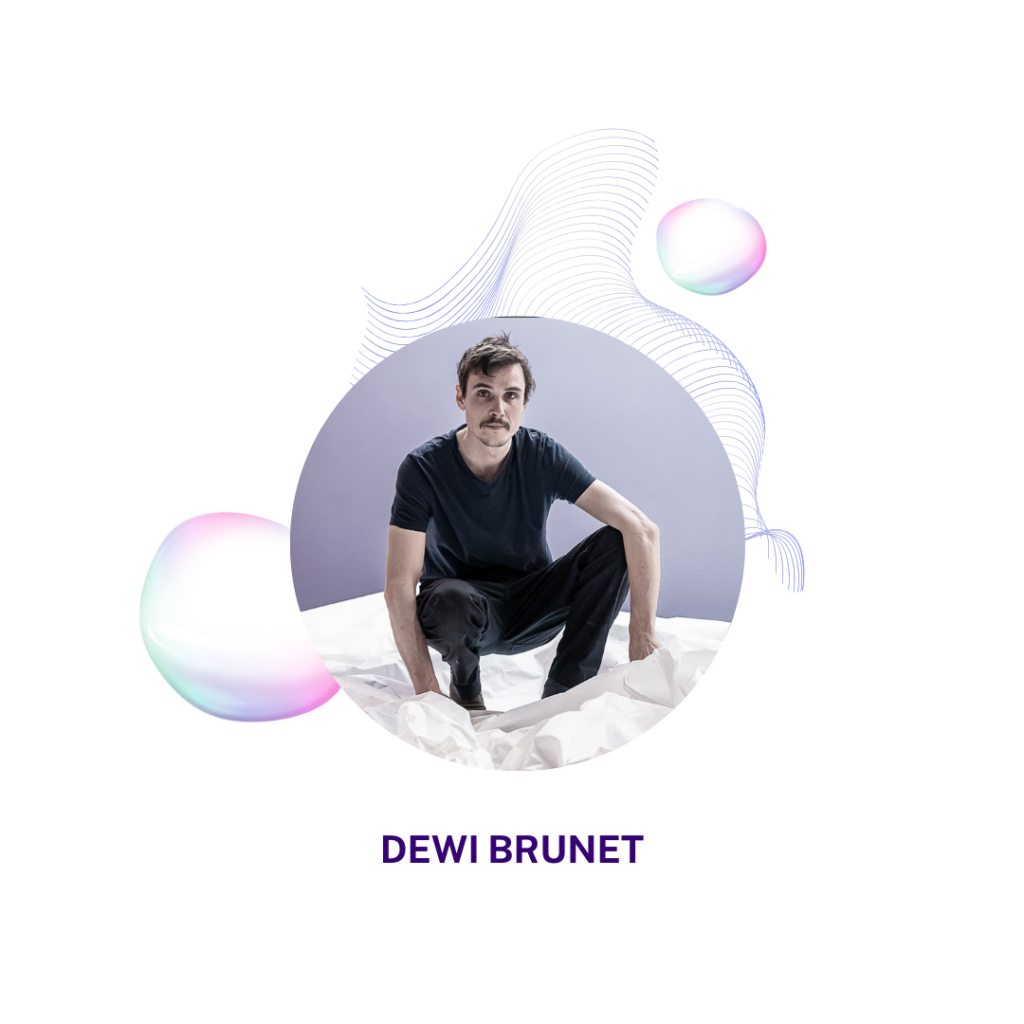
Each year, Ohme supports and offers its expertise to artists through five artistic and technical residencies. Through this initiative, and according to the specific needs of each artist, Ohme actively supports the creation, production and diffusion of innovative artistic projects, provides solid technical and scientific support in research and development, networks with experts and researchers, and promotes exchanges between art, science and technology.
Ohme launched a call for artists on the theme of sustainable robotics in partnership with the Brussels Institute for Advanced Studies – BrIAS, and with FARI – Institute of Artificial Intelligence for the Common Good, both co-founded and co-led by the Université libre de Bruxelles (ULB) and the Vrije Universiteit Brussels (VUB).
The selected artists are A Two Dogs Company – Kris Verdonck, and Dewi Brunet.

A Two Dogs Company (ATDC) serves as the creative core for Kris Verdonck’s innovative projects in performing and transdisciplinary arts since 2010. Based in Brussels, ATDC operates as a network structure, collaborating with both permanent and freelance talents. Verdonck’s consistent exploration of the societal and ecological impacts of technological advancements fuels ATDC’s endeavors. His multidisciplinary approach blends theatrical and visual elements to create unique artistic expressions showcased in theaters, museums, and public spaces.
ATDC, in collaboration with the Royal Belgian Institute of Natural Sciences (KBIN), proposes the project Garden of the Future. This endeavour seeks to envision a future garden shaped by biodiversity loss and the integration of self-sustaining robots. Through an exhibition at the Museum of Natural Sciences, the project aims to deploy robots mimicking ecological functions of vanished animal species. Powered by renewable energy sources and devoid of traditional batteries, these robots will demonstrate a symbiotic relationship with their environment. ATDC’s artistic expertise, coupled with KBIN’s scientific insights, will drive this exploration, fostering dialogue between art, technology, and ecology.
This residency provides a platform to develop the ‘Garden of the Future’ project further. Through technical and scientific collaborations, the project aims to refine the design and functionality of robots while deepening the artistic and ecological narratives. By leveraging expertise from the arts, robotics, and biology, the residency seeks to create an innovative and educational experience that raises awareness of ecological dynamics and the role of technology in addressing climate change.

Dewi Brunet is a folding artist. Self-taught, he has been practising this discipline for over fifteen years. Still a little-known practice, he sees folding as a technique, a medium of expression and a multi-disciplinary field of research. Today, his artistic projects focus on the sensitive relationship between the living world and robots. Dewi’s practice delves into the realm of Oribotics, a fusion of nature, origami, and robotics pioneered by Matthew Gardiner.
Dewi’s project seeks to blur further the boundaries between living organisms and machines through the creation of innovative Oribotics hybrids. Building upon previous collaborations and explorations, the project aims to cultivate new imaginaries by integrating advanced crumpling and pleating techniques. By expanding reflections to encompass various life forms, including plants, fungi, bacteria, and minerals, the artist endeavors to foster a sensitive perception of belonging to the natural world while addressing sustainability challenges.
The overarching goal of the residency is to deepen the research on organic/technologic hybrids and explore new aesthetic possibilities through advanced folding techniques. By refining existing projects, Dewi aims to not only optimise technical capabilities but also reimagine exhibition spaces for enhanced viewer engagement. Furthermore, the residency serves as a platform to investigate the potential of biobased materials in addressing ecological concerns while bridging the gap between art and science.
Partners
FARI is an independent and not-for-profit initiative that studies, develops, and fosters the adoption and governance of Artificial Intelligence, Data and Robotics technologies in an inclusive, ethical and sustainable way. Opened this year, this institute brings together world-leading researchers and experts in those fields to meet challenges at local level.
The newly founded Brussels Institute for Advanced Studies – BrIAS, aims to expand upon the mission of other IASes as an incubator of ideas and research by focusing on current and urgent themes with a great societal impact. Located in the heart of Brussels, it aims to attract the very best scientists, artists or designers, coming from various fields or countries and with no philosophical or political restriction, and provide the opportunity to work in an atmosphere of complete freedom, collaboration, mutual emulation and cross-fertilisation. In this context, BrIAS aims to facilitate collaborations with countries facing critical challenges pertaining to sustainability.
For its 2024 edition, BrIAS has chosen the theme of sustainable robotics with the aim of exploring how robots and automated devices can contribute to sustainability in a world where they are becoming increasingly present.
International robotics specialists and experts from various fields are invited to Brussels on several occasions between January and May 2024 to discuss how robotics can contribute to facing the worldwide challenges identified by the United Nations’ Sustainable Development Goals (SDGs), such as poverty, inequality and climate change. Particular attention will be paid to issues relating to health, food and agriculture, peacekeeping, sustainable production and the management of electronic waste, as well as those relating to social inclusion, particularly through social robots.
Find out more about the theme
🔗 BrIAS programme
🔗 Sustainable Robotics
🔗 United Nations’ Sustainable Development Goals
Laboratories involved in the project
🔗 SMIT VUB (Studies in Media, Innovation and Technology)
🔗 SAAS ULB (Department of Control Engineering and System Analysis)
🔗 FARI ULB/VUB
🔗 R&MM VUB (Robotics & Multibody Mechanics Research Group)
🔗 BruBotics VUV (Brussels Human Robotics Research Center
Project Partners

This programme is organised thanks to the support of Innoviris and Fédération Wallonie-Bruxelles
